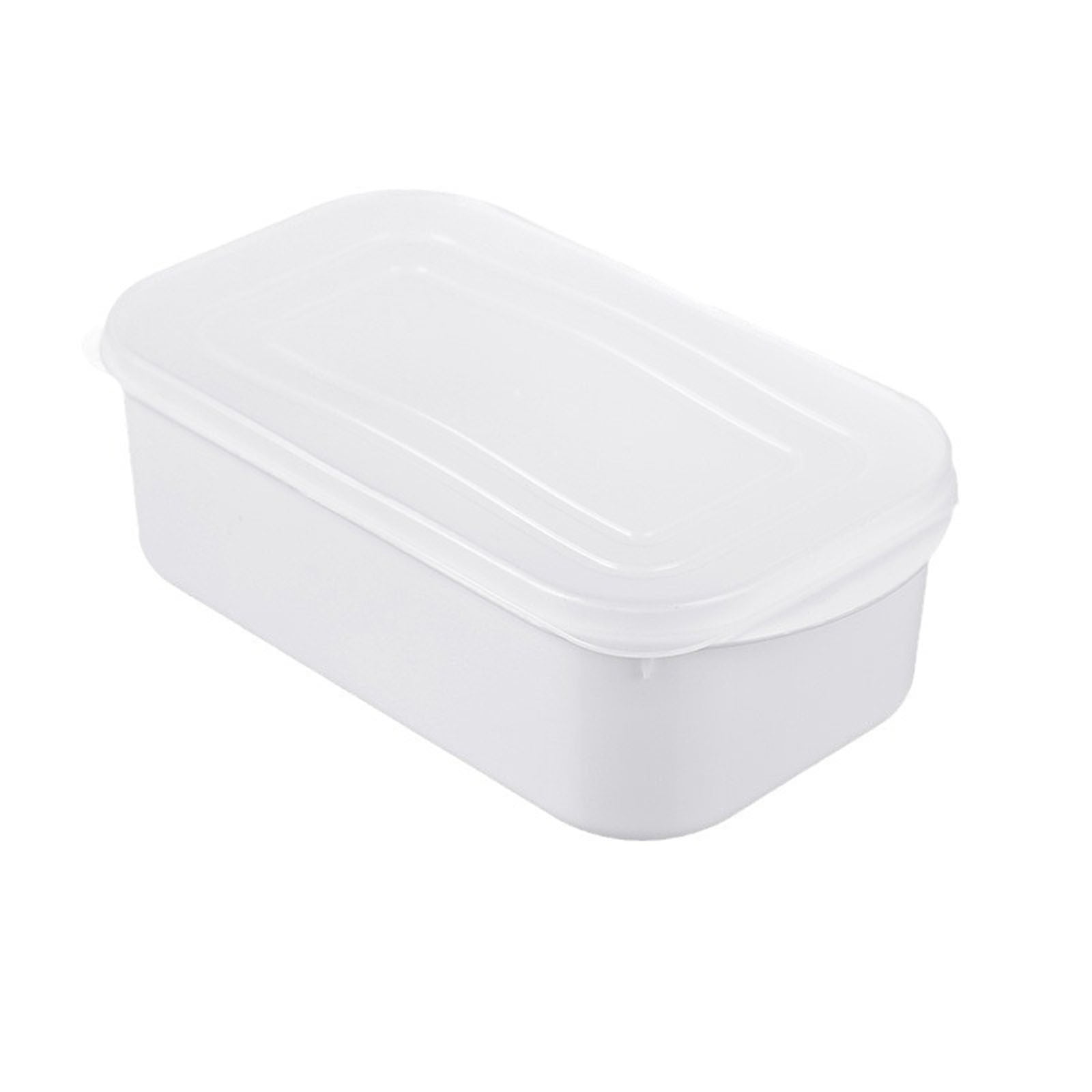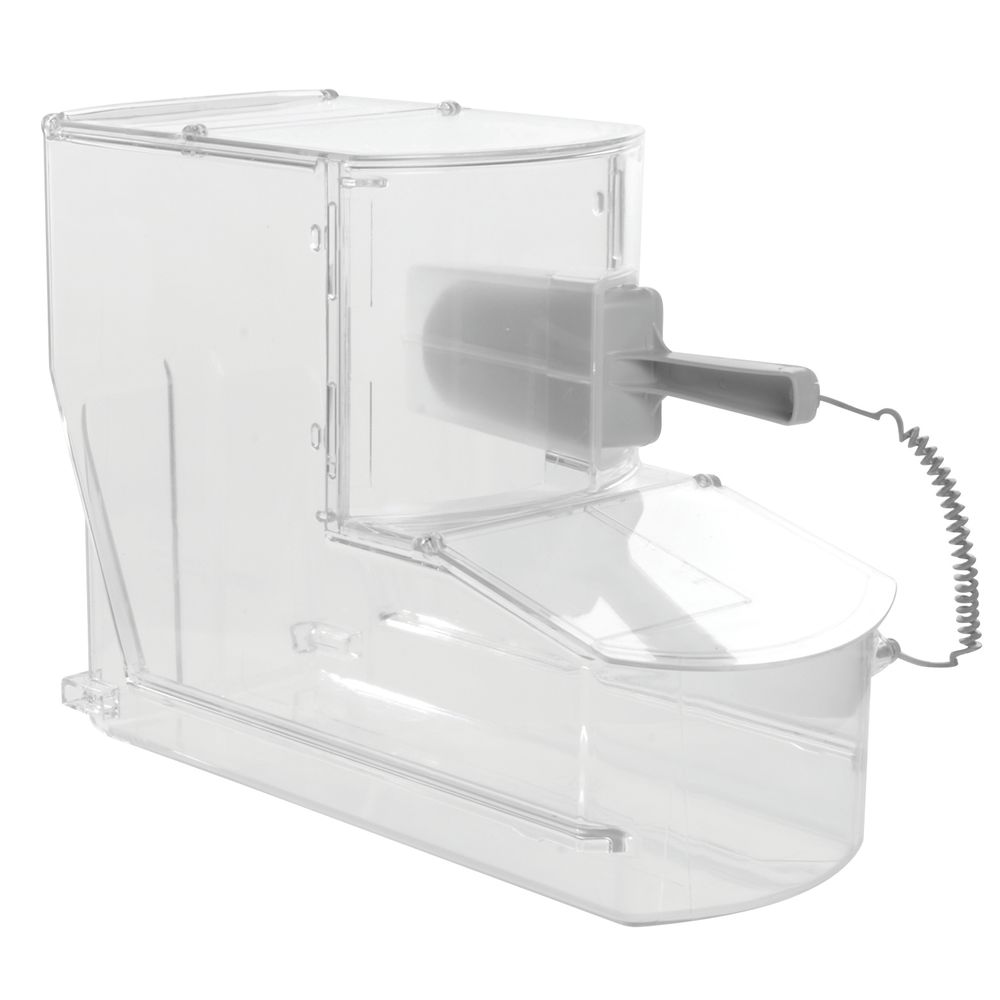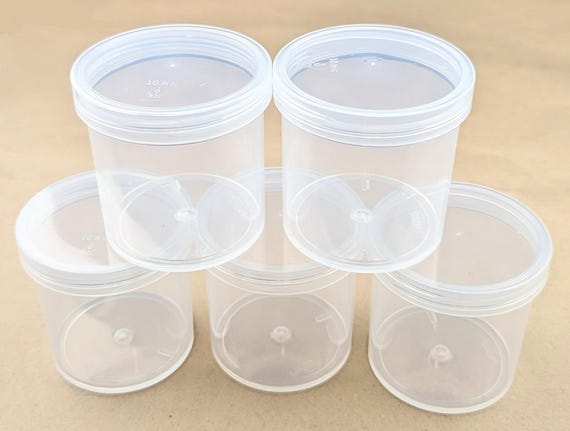A Comprehensive Guide to the Different Kinds Of Mass Plastic Containers Available Today
Mass plastic containers play a crucial role in different markets, providing services for storage and transport. Their diverse kinds deal with various needs, from rigid alternatives for solid materials to versatile containers fitting numerous forms. Each kind presents distinct advantages, making it vital to understand their attributes and applications. As industries evolve, so do the needs for efficient container services. What aspects should one think about when selecting the right mass container?
Review of Mass Plastic Containers

Sorts Of Mass Plastic Containers
Mass plastic containers come in different types, each fit to details applications. Stiff mass containers, adaptable bulk containers, and intermediate mass containers stand for the key classifications, each offering unique advantages. Comprehending these types is necessary for picking the right container for transporting and keeping products.

Rigid Mass Containers
Inflexible mass containers are crucial for efficient storage and transportation of various products throughout sectors. These containers are normally created from sturdy plastics, permitting them to hold up against harsh handling and ecological conditions. They are available in different shapes and sizes, including containers, drums, and totes, making them ideal for saving every little thing from granular compounds to liquids. Rigid containers often include reinforced walls and secure covers, making sure the contents remain protected throughout transportation. Their stackable layout maximizes storage room, making them suitable for storehouses and manufacturing centers. Furthermore, numerous inflexible mass containers are recyclable and recyclable, adding to sustainability efforts. Generally, their effectiveness and flexibility make inflexible mass containers an essential component in supply chain procedures.
Flexible Mass Containers
Adaptable mass containers, frequently described as versatile intermediate mass containers (FIBCs), function as a flexible remedy for delivering and saving a range of dry products. These containers are usually made from woven polypropylene and are designed to be lightweight yet solid, permitting for reliable handling and stacking. Their versatility allows them to accommodate different sizes and shapes, making them appropriate for products varying from grains to chemicals. FIBCs can be equipped with functions such as spouts for very easy filling and discharge, in addition to safety coverings for improved toughness. Additionally, they are recyclable and multiple-use, adding to sustainable methods in sectors such as farming, food processing, and construction. Generally, adaptable bulk containers supply a cost-effective and effective option for mass product monitoring.
Intermediate Bulk Containers
Intermediate bulk containers (IBCs) are necessary for the reliable transport and storage space of fluids and granular products throughout numerous sectors. These containers commonly have a capability varying from 275 to 330 gallons and are created for very easy stacking and managing. Made from long lasting products like high-density polyethylene or steel, IBCs supply exceptional security versus contamination and environmental factors. Their layout consists of attributes such as an integrated pallet for forklift access and a detachable top for easy dental filling and cleansing. IBCs are extensively utilized in chemical, food, and pharmaceutical industries, ensuring conformity with safety and security policies. Their flexibility and reusability make them a cost-efficient remedy for bulk storage space and transportation, contributing to supply chain efficiency and sustainability.
Functions and Advantages of Bulk Plastic Containers
Mass plastic containers are vital tools in various industries, supplying a mix of toughness and functionality. These containers are constructed from high-grade products, making them resistant to influences, chemicals, and ecological elements. This effectiveness assurances product safety and security throughout storage and transport.
In addition, mass plastic containers are lightweight, facilitating simplicity of minimizing and dealing with delivery costs. Their stackable design takes full advantage of storage performance, enabling maximized storage facility room. Numerous versions include protected covers or closures, offering an impermeable seal that protects against and preserves components contamination.
In addition, bulk plastic containers are recyclable and commonly reusable, contributing to lasting techniques. Their versatility enables for a variety of applications, from food storage to commercial usage, boosting their value across sectors. Businesses take advantage of the lengthy life expectancy and low maintenance demands of these containers, making them a cost-efficient solution for both short-term and long-lasting demands.
Industries That Utilize Bulk Plastic Containers
Different markets gain from using mass plastic containers, each leveraging their one-of-a-kind homes for certain applications. The food and drink market counts on these containers for safe storage and transportation of items, while the chemical production field uses them for taking care of unsafe materials. Furthermore, the pharmaceutical distribution needs emphasize the importance of resilience and cleanliness in packaging options.
Food and Beverage Industry
As the demand for safe and reliable storage space services remains to increase, the food and drink market increasingly relies upon mass plastic containers for their operational needs. These containers provide robust, light-weight, and flexible options for saving active ingredients, finished products, and waste products. Made from food-grade products, they assure compliance with health and security requirements. Various layouts, such as stackable containers and tote boxes, maximize space during transport and storage, boosting logistical effectiveness. Additionally, the openness of some bulk containers permits easy supply administration, reducing the danger of spoilage. With the market's focus on sustainability, numerous manufacturers are currently supplying multiple-use and recyclable choices, aligning with environmentally friendly techniques while meeting the high demands of food safety and security and hygiene.
Chemical Production Field
The chemical manufacturing field relies greatly on bulk plastic containers for the secure and effective storage of basic materials, intermediates, and ended up products. These containers are designed to stand up to different chemicals, guaranteeing that hazardous materials do not leak or weaken the container itself. Common types consist of high-density polyethylene (HDPE) and polypropylene containers, which use excellent chemical resistance and toughness. Their lightweight nature and stackable design assist in transport and storage space, optimizing space in producing centers. In addition, many bulk plastic containers include functions such as tamper-evident seals and easy-to-read labeling, boosting safety and security and conformity with sector guidelines. Generally, mass plastic containers are indispensable to the chemical production process, offering trusted services for managing varied materials.
Drug Circulation Demands
Pharmaceutical distribution relies on bulk plastic containers to meet strict security and regulative demands. These containers are vital for keeping a variety and transferring of pharmaceutical products, including active pharmaceutical active ingredients (APIs) and ended up medicines. Their style warranties protection against moisture, light, and contamination, maintaining the integrity of delicate materials. Additionally, bulk plastic containers are certified with market requirements such as Good Production Practices (GMP) and are usually made from products that are FDA-approved. The use of these containers enhances performance in the supply chain, enabling risk-free, large-scale circulation while lessening waste. Companies in the pharmaceutical sector focus on using sturdy, watertight, and tamper-evident containers to ensure item security and quality throughout the logistics procedure.
Considerations for Choosing the Right Container
When choosing the suitable mass plastic container, various factors need to be thoroughly weighed to ensure perfect capability and safety. The nature of the products to be stored is extremely important; compatibility with the container's material can affect integrity and safety and security. Bulk Plastic Containers. Furthermore, the container's dimension and shape have to align with the storage space and transport demands, ensuring efficient room utilization
Tons ability is another crucial factor to consider, as it ought to suit the weight of components without risk of damages or failure. The layout features, such as airing vent or covers, can affect functionality and gain access to. Compliance with market laws is essential, particularly in sectors like drugs, where security standards are rigid.
Finally, the expected life expectancy and longevity of the container ought to be assessed to verify it meets the functional needs without frequent replacement. By evaluating these variables, one can pick the most suitable mass plastic container for specific applications.
Environmental Influence and Sustainability
As companies significantly focus on sustainability, the ecological influence of mass plastic containers has actually come under examination. These containers, commonly made from products such as polyethylene or polypropylene, add considerably to plastic waste if not handled appropriately. Their manufacturing includes the consumption of nonrenewable fuel sources, which can lead to enhanced greenhouse gas exhausts. Nonetheless, advancements in reusing innovation and the development of biodegradable choices are aiding to alleviate these issues.
Numerous manufacturers are embracing practices that stress the use of recycled products, thereby lowering the demand for virgin plastics. The durability of mass plastic containers also contributes; they are developed to be recycled multiple times, which can decrease their general environmental impact when compared to single-use options. Ultimately, the sector faces the difficulty of stabilizing performance with eco-friendly duty, making sustainable practices crucial for the future of bulk plastic containers.
Ideal Practices for Storage and Transportation
Reliable storage and transport of mass plastic containers considerably affect both operational effectiveness and sustainability. To optimize room, organizations should stack containers firmly, guaranteeing security and avoiding damages. Correct labeling is important for very easy identification, which simplifies access processes. Additionally, maintaining a tidy and well organized storage location lowers the risk of contamination and enhances security.
For transport, picking the appropriate vehicle is important; containers must be safeguarded to prevent changing throughout transportation. Firms should also consider making use of pallets to facilitate less complicated loading and unloading. Regular evaluations of containers for deterioration can avoid pricey replacements.
Temperature control is another essential aspect, as severe problems can endanger the honesty of plastic bulk containers the plastic. Training personnel on ideal techniques for dealing with and transportation guarantees conformity and advertises a culture of security. By carrying out these best practices, businesses can boost their operational effectiveness while adding to environmental sustainability.
Regularly Asked Concerns
How Do I Clean Mass Plastic Containers Efficiently?
To clean bulk plastic containers properly, one should rinse them with warm water, make use of a light detergent and scrub with a soft brush. Wash thoroughly, then permit to air completely dry completely prior to storage or reuse.
What Is the Lifespan of Bulk Plastic Containers?
The life expectancy of bulk plastic containers generally varies from 5 to ten years, depending on the material, use, and environmental problems. Proper maintenance and storage space can substantially extend their functionality and toughness in time.
Can Mass Plastic Containers Be Customized?

Do Mass Plastic Containers Have Warranty Options?

Exist Regulations for Making Use Of Bulk Plastic Containers?
Yes, laws exist for utilizing bulk plastic containers, mostly focused on security, ecological impact, and material conformity. These regulations ensure that containers fulfill industry requirements and are ideal for carrying numerous substances safely and effectively.
Stiff mass containers, versatile mass containers, and intermediate mass containers stand for the key groups, each offering unique advantages. Flexible bulk containers, commonly referred to as adaptable intermediate mass containers (FIBCs), offer as a flexible solution for saving a selection and moving of completely dry products. The chemical manufacturing industry relies greatly on bulk plastic containers for the efficient and secure storage space of raw products, intermediates, and completed items. plastic bulk containers. These containers are developed to endure various chemicals, making certain that harmful products do not leakage or degrade the container itself. In addition, bulk plastic containers are certified with industry criteria such as Great Production Practices (GMP) and are commonly made from products that are FDA-approved